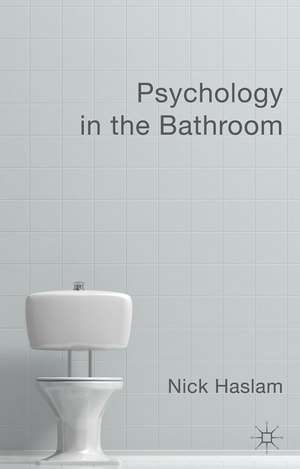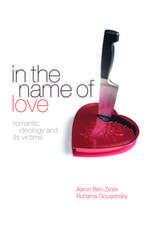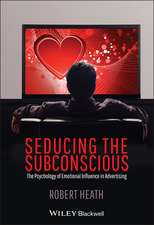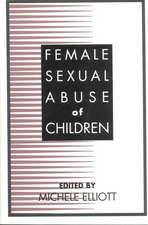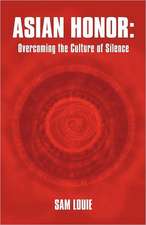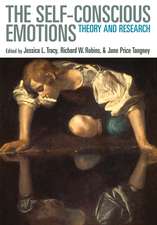Psychology in the Bathroom
Autor Nick Haslamen Limba Engleză Hardback – 7 iun 2012
Presenting cutting-edge science in a playful manner, this exploration of a topic that has been veiled by taboo, the psychology of excretion, surveys an assortment of embarrassing processes, shameful disorders and disgusting habits taking the reader on a tour of the history and literature of elimination.
| Toate formatele și edițiile | Preț | Express |
|---|---|---|
| Paperback (1) | 379.68 lei 6-8 săpt. | |
| Palgrave Macmillan UK – 7 iun 2012 | 379.68 lei 6-8 săpt. | |
| Hardback (1) | 389.70 lei 6-8 săpt. | |
| Palgrave Macmillan UK – 7 iun 2012 | 389.70 lei 6-8 săpt. |
Preț: 389.70 lei
Nou
Puncte Express: 585
Preț estimativ în valută:
74.57€ • 77.86$ • 61.72£
74.57€ • 77.86$ • 61.72£
Carte tipărită la comandă
Livrare economică 04-18 aprilie
Preluare comenzi: 021 569.72.76
Specificații
ISBN-13: 9780230368248
ISBN-10: 0230368247
Pagini: 174
Ilustrații: VIII, 174 p.
Dimensiuni: 140 x 216 x 20 mm
Greutate: 0.45 kg
Ediția:2012
Editura: Palgrave Macmillan UK
Colecția Palgrave Macmillan
Locul publicării:London, United Kingdom
ISBN-10: 0230368247
Pagini: 174
Ilustrații: VIII, 174 p.
Dimensiuni: 140 x 216 x 20 mm
Greutate: 0.45 kg
Ediția:2012
Editura: Palgrave Macmillan UK
Colecția Palgrave Macmillan
Locul publicării:London, United Kingdom
Cuprins
List of Tables Acknowledgments Introduction The Irritable Bowel The Nervous Bladder On Flatulence The Anal Character Potty Mouth Toilet Graffiti Seat Up or Down? References Index
Recenzii
"Dr. Haslam should be congratulated for creating a unique compendium of information that is so entrenched in our human behavior but rarely thought about or discussed. Psychology in the Bathroom details a wide range of behaviors that are linked to excretory function. Topics such as the 'anal' personality, latrinalia (toilet graffiti, flatulence, scatologic swearing (potty mouth) and medical conditions like irritable bowel syndrome are well covered with regard to their history, psychology and gender and cultural differences in their societal expression. Some topics, like whether the toilet seat should be up or down is nicely discussed in a balanced attempt to solve a seemingly unsolvable domestic problem. I highly recommend this book to psychologists, health care professionals and anyone else interested in understanding such difficult to obtain areas of knowledge." - Douglas A Drossman, Professor of Medicine and Psychiatry, University of North Carolina at Chapel Hill, USA and Past President of the American Psychosomatic Society.
"Why is it that the psychological study of eating and sex enjoy so much attention from psychologists and the general public, while a no-less universal feature of human experience is ignored? Psychology in the Bathroom argues persuasively for the importance of this overlooked topic, then comprehensively rectifies its neglect. In doing so, this glorious, witty and unerringly pitch-perfect book offers an unusual and compelling window to the human psyche. With a scope far grander than its subject matter, this meticulously researched and wide-ranging study of excretion and related phenomena, both typical and pathological, integrates fascinating and often surprising insights from intersections with psychoanalytic theory, clinical research, the study of emotion, the intimacy of body and mind, language, gender and more. Beautifully written with unfailing clarity, sensitivity and humour, this important, captivating and charming exploration of the psychology of a universal phenomenon is a must-read for researchers, clinicians and general readers alike." - Cordelia Fine (author of Delusions of Gender), Associate Professor, Melbourne Business School, Australia
"Imagine if 10% of human nature had been walled off from science by an irrational taboo. Wouldn't you want to peek in and see what was hiding back there? In this extraordinary book, Nick Haslam kicks down the bathroom door and follows the plumbing lines wherever they lead. It's great fun to read - a roller coaster ride through body, mind, and soul." - Jonathan Haidt, Professor of Psychology, University of Virginia, USA
"Beautifully written with unfailing clarity and truly enviable humour, this important, captivating and charming exploration of the psychology of a universal phenomenon is a must-read for researchers and general readers alike." - The Psychologist
"Toilet reading' of a high order." - Nature
"James Bond conducts a sex life that leaves little to the imagination. But does the virile Mr Bond ever use the toilet? The answer is no. Not in literature, movies or television, with rare exceptions...It is high time that psychiatrists have a clear view on the issues involved with toileting, and a book by Professor Nick Haslam, a social psychologist at Melbourne University, is an excellent introduction." Australasian Psychiatry
'A new psychology book lifts the lid on the most natural of human behaviours, yet one of the least explored.' - Daily Mail
'The toilet is a focus of intense emotions, unseemly interests, strange afflictions and earthy humour. Psychology in the Bathroom looks to survey a variety of embarrassing processes, shameful disorders and disgusting habits. Elizabeth Cotton recommends this book to anyone curious about the politics and psychology of "dirty protests" and "defensive flatulence".' - LSE Review of Books
"Why is it that the psychological study of eating and sex enjoy so much attention from psychologists and the general public, while a no-less universal feature of human experience is ignored? Psychology in the Bathroom argues persuasively for the importance of this overlooked topic, then comprehensively rectifies its neglect. In doing so, this glorious, witty and unerringly pitch-perfect book offers an unusual and compelling window to the human psyche. With a scope far grander than its subject matter, this meticulously researched and wide-ranging study of excretion and related phenomena, both typical and pathological, integrates fascinating and often surprising insights from intersections with psychoanalytic theory, clinical research, the study of emotion, the intimacy of body and mind, language, gender and more. Beautifully written with unfailing clarity, sensitivity and humour, this important, captivating and charming exploration of the psychology of a universal phenomenon is a must-read for researchers, clinicians and general readers alike." - Cordelia Fine (author of Delusions of Gender), Associate Professor, Melbourne Business School, Australia
"Imagine if 10% of human nature had been walled off from science by an irrational taboo. Wouldn't you want to peek in and see what was hiding back there? In this extraordinary book, Nick Haslam kicks down the bathroom door and follows the plumbing lines wherever they lead. It's great fun to read - a roller coaster ride through body, mind, and soul." - Jonathan Haidt, Professor of Psychology, University of Virginia, USA
"Beautifully written with unfailing clarity and truly enviable humour, this important, captivating and charming exploration of the psychology of a universal phenomenon is a must-read for researchers and general readers alike." - The Psychologist
"Toilet reading' of a high order." - Nature
"James Bond conducts a sex life that leaves little to the imagination. But does the virile Mr Bond ever use the toilet? The answer is no. Not in literature, movies or television, with rare exceptions...It is high time that psychiatrists have a clear view on the issues involved with toileting, and a book by Professor Nick Haslam, a social psychologist at Melbourne University, is an excellent introduction." Australasian Psychiatry
'A new psychology book lifts the lid on the most natural of human behaviours, yet one of the least explored.' - Daily Mail
'The toilet is a focus of intense emotions, unseemly interests, strange afflictions and earthy humour. Psychology in the Bathroom looks to survey a variety of embarrassing processes, shameful disorders and disgusting habits. Elizabeth Cotton recommends this book to anyone curious about the politics and psychology of "dirty protests" and "defensive flatulence".' - LSE Review of Books
Notă biografică
NICK HASLAM Professor of Psychology at the University of Melbourne, Australia. His interests span social, personality and clinical psychology, and he has published extensively on topics including psychiatric classification, dehumanization, prejudice and refugee mental health. He is Associate Editor of the British Journal of Social Psychology and sits on four other journal editorial boards. His previous publications include Introduction to Personality and Intelligence; Yearning to Breathe Free (co-edited); Introduction to the Taxometric Method: A Practical Guide and Relational Models Theory: A Contemporary Overview (edited).
Descriere
Excretion is a universal part of the human experience that is veiled in taboo. The toilet is a focus of intense emotions, unseemly interests, strange afflictions and earthy humour. Psychology in the Bathroom surveys a variety of embarrassing processes, shameful disorders and disgusting habits, taking the reader on a tour of the clinical and research literatures on elimination from the early psychoanalysts to the latest in neurogastroenterology.
Chapters examine the psychological dimensions of constipation and diarrhoea, incontinence and urinary inhibition, and the surprisingly rich psychology of flatulence. Moving beyond the literal products of the irritable bowel and the nervous bladder, the book explores the symbolic aspects of excretion, including dirty language, fetishes, toilet graffiti and the vexed question of whether men should put the seat down. The book presents cutting-edge science in a playful manner that will be accessible to students in psychology and the general reader.
